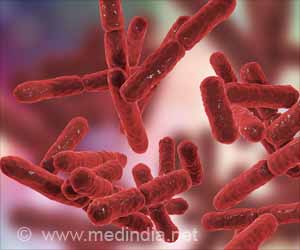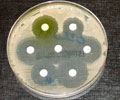Antibiotic resistance continues to dominate the world, but now there is a drug to treat it.
- Antibiotic resistance is becoming common among all the bacterial species
- Bacteria like Staphylococcus aureus are notoriously known for their multiple resistance
- A chemical substance known as endolysin has the capacity to fight antibiotic-resistant bacteria
Endolysin, a Promising Solution against Antimicrobial Resistance
Go to source).
"Antibiotic resistance is an increasing problem, especially on a global scale. And when you have this relatively simple infection that suddenly cannot be treated with antibiotics, the situation can turn serious, sometimes life-threatening," says Professor Niels Odum from the LEO Foundation Skin Immunology Research Centre at the University of Copenhagen.
As a result, many resources are being invested around the world to combat antibiotic resistance in staphylococcus aureus infections, and a new study among cutaneous lymphoma patients has generated promising results.
Endolysin, a Chemical that can Cure Antibiotic Resistance
Endolysins, a new substance, have been shown to be capable of killing both resistant and non-resistant Staphylococcus aureus without the use of antibiotics. But we’ll get to that later.The discovery is good news for those with weakened immune systems, as a staphylococcus aureus infection can be dangerous and, in the worst-case scenario, lethal. But, it also adds to our understanding of various types of treatment.
"To people who are severely ill with, e.g., skin lymphoma, staphylococci can be a huge, sometimes insoluble problem, as many are infected with a type of staphylococcus aureus that is resistant to antibiotics," says Niels Odum, who adds:
A staphylococcus aureus infection can aggravate cancer in some patients. Furthermore, while antibiotics appear to be effective in some circumstances, they are not without drawbacks.
Furthermore, while antibiotics appear to be effective in some circumstances, they are not without drawbacks.
As a result, treating Staphylococcus aureus might be difficult. In the worst-case scenario, cancer patients could die from an infection that doctors are unable to manage.
Endolysins enter the picture here, as this novel chemical may be part of the solution to antibiotic resistance such as MRSA.
"This particular endolysin is a brand new, artificially produced enzyme that has been improved several times and designed as a new drug," explains Postdoc Emil Pallesen, who is the first author of the study. He adds:
"The great thing about this enzyme is that it has been designed to penetrate the wall of Staphylococcus aureus. This enables it to target and kill the harmful staphylococcus and leave harmless skin bacteria unharmed." That is what prompted the researchers to put the new material to the test; they expected it to be capable of killing both resistant and non-resistant staphylococcus bacteria.
"We have been testing the substance on skin samples from patients, and it does appear to kill Staphylococcus aureus in patients. Endolysins do not care whether the bacterium is resistant to antibiotics or not, because they do not work in the same way as antibiotics," says Niels Odum, adding:
"The really good news is that our lab tests have shown that endolysins do not just eradicate Staphylococcus aureus; they also inhibit their ability to promote cancer growth."
Reference:
- Endolysin, a Promising Solution against Antimicrobial Resistance - (https://pubmed.ncbi.nlm.nih.gov/34827215/)
Source-Medindia















